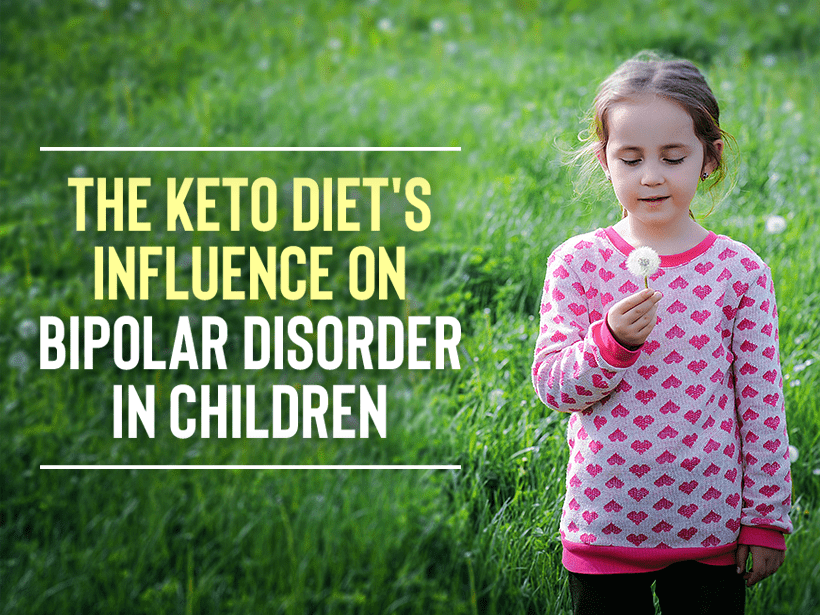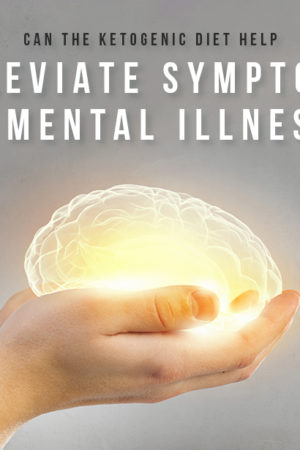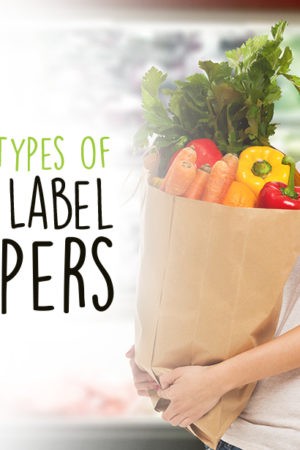As the number of children suffering from bipolar disorder continues to rise,1 researchers are studying a new type of treatment for the condition—improved nutrition. Psychiatrists at Duke University Medical Center in Durham, North Carolina, are currently investigating the effects that vitamin and sugar intake may have on children suffering from bipolar disorder. The ketogenic diet has emerged as a prime candidate for nutrition intervention thanks to its anti-inflammatory effects and limitation of processed sugar consumption.
Inflammation And The Bipolar Child
One of the primary factors that contribute to the severity of symptoms of bipolar disorder in children is brain inflammation.2 Inflammation has been linked to the decreased production of serotonin, a neurotransmitter that plays a significant role in managing symptoms of depression and bipolar disorder. Dr. John L. Beyer, a psychiatrist working with the at Duke University Medical Center, recently stated in an interview that the effects of the “typical” American diet (that is, one high in fat, sugar, and carbohydrates) may be contributing to rising levels of bipolar disorder in children through decreased efficiency regulating inflammation.
“It is thought that certain lifestyle diets, especially a Western-based diet high in fats and carbohydrates, may increase the body's challenge in regulating the inflammatory processes, oxidative stress, or mitochondrial activity. These long-term changes may contribute to chronic dysregulation of the cells that modulate moods,” Dr. Beyer explained.
Special Dietary Considerations For Bipolarity
Dr. Beyer’s team of investigators is currently researching the effects that the low-carb ketogenic diet may have in alleviating the symptoms of inflammation and thus making bipolar disorder in children easier to manage. The diet has been linked to the consumption of foods that are low on the glycemic index, which indicates that they may be better for regulating inflammation. Additionally, the diet limits the consumption of processed sugar, a known inflammatory agent. The ketogenic diet has previously been successfully used as an alternative treatment for children with epilepsy, and Dr. Beyer is confident that future research will provide greater insights into the effects keto may have on the brain.
“There may be a role for some types of diets, such as a ketogenic diet, in certain mood disorders, though we are a long way from determining who would benefit or if there is a specific diet that all patients with bipolar disorder should use.” 2
The Ketogenic Diet And Neurodivergence
The current investigation underway at Duke University Medical Center is not the first foray that researchers have made into the effects that the ketogenic diet may have on non-neurotypical members of the population. One researcher recently connected a low-carb diet to improvement in the symptoms of depression, anxiety, and autism, while another researcher theorized that the alleviation in symptoms could be the result of a shift towards a healthier body weight itself. Though there is still plenty of research to be done, one thing remains certain for now—scientists will be reconsidering the role that carbohydrates play in our diets, and a major shift in dietary recommendations for neurodivergent members of the population may be on the horizon.
NUTRITIONAL DISCLAIMER
The content on this website should not be taken as medical advice and you should ALWAYS consult with your doctor before starting any diet or exercise program. We provide nutritional data for our recipes as a courtesy to our readers. We use Total Keto Diet app software to calculate the nutrition and we remove fiber and sugar alcohols, like erythritol, from the total carbohydrate count to get to the net carb count, as they do not affect your blood glucose levels. You should independently calculate nutritional information on your own and not rely on our data. The website or content herein is not intended to cure, prevent, diagnose or treat any disease. This website shall not be liable for adverse reactions or any other outcome resulting from the use of recipes or recommendations on the Website or actions you take as a result. Any action you take is strictly at your own risk.
- Keto Drives Increased Calorie Burn - July 11, 2019
- New High-Protein, Low-Sugar Greek Yogurt Hits Market - April 1, 2019
- Can Going Low-Carb Fight Back Fat? - December 4, 2018































